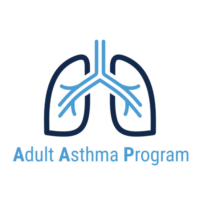About Asthma
Overview
The estimated number of people with asthma in the United States reached 25,257,138 in the Centers for Disease Control and Prevention (CDC) 2020 National Health Interview Survey (NHIS). That is 7.8% of the American population! The disease disproportionately affects those who are female, are between 20 and 24 years old, identify as either African-American or American Indian, and live below 100% of the poverty threshold. Asthma is a chronic condition in which an asthma trigger causes the airways in your lungs become inflamed and narrowed, making it difficult to breathe. Wheezing, coughing, and/or feeling tightness in your chest are associated with asthma. Asthma can affect people of all ages, but often begins when you are a child. The exact cause of asthma is unknown. Asthma triggers vary for asthma patients. The cause of this variation in reaction to asthma triggers is unknown. Your environment (home or work), genetics, other medical conditions, race or ethnicity, and/or sex may increase your chances of developing asthma.
Signs and Symptoms
Common symptoms of asthma include but are not limited to: tightness in the chest, wheezing, coughing, and shortness of breath.
Attacks and Triggers
An asthma attack is an episode in which your asthma symptoms are severe and may require medical assistance. These attacks can be sudden or gradual. More severe asthma is associated with more asthma attacks.
Common triggers of asthma attacks include but are not limited to: tobacco smoke, dust mites, air pollution, pets, mold, exercise, perfumes, infections (like influenza), and other forms of smoke.
Diagnosis and Treatment Plans
Asthma is often diagnosed with a medical history, physical examination, and pulmonary function tests.
Once diagnosed with asthma, you can work with your doctor to come up with a treatment plan that is tailored to you. Treatment often includes medicine to control your asthma, typically taken daily, as well as rescue medicine in case of an asthma attack. It is important to take your medicine exactly as prescribed by your doctor and to stay away from triggers that might cause you to have an asthma attack.
For more information about asthma, visit https://www.cdc.gov/asthma/default.htm and https://www.nhlbi.nih.gov/health-topics/asthma.
Source: Centers for Disease Control and Prevention and the National Heart, Lung, and Blood Institute.
